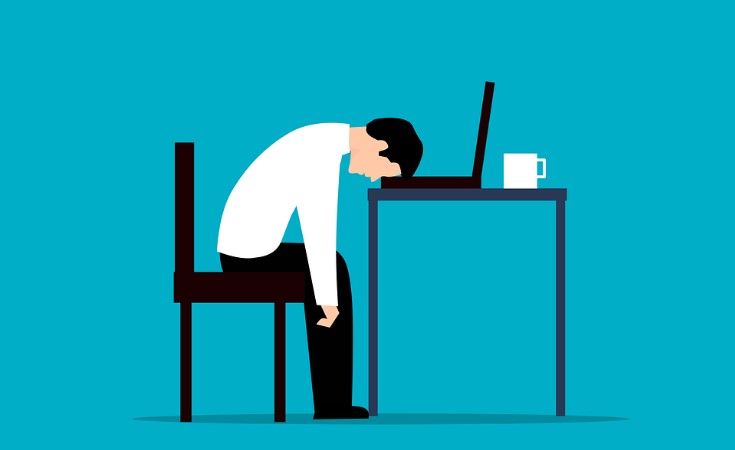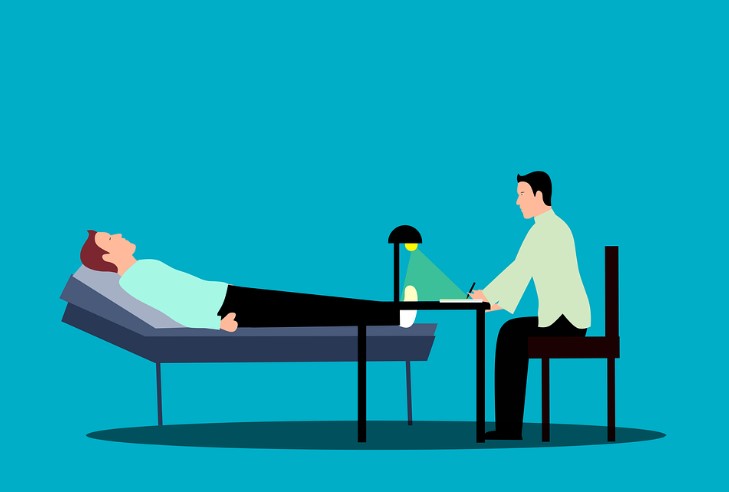It’s no secret that men have been struggling with their mental health for years. In fact, it’s something that’s been openly talked about for quite some time now. However, what is surprising is the lack of action that has been taken to address this growing problem.
Mental health is an important issue and one that should be given just as much attention as physical health. After all, the two are interconnected. Unfortunately, mental health is often seen as a taboo topic, especially when it comes to men.
This needs to change. Men need to feel comfortable talking about their mental health without fear of judgment or stigma.
Mental health is often seen as a women’s issue, but it’s important to remember that men can suffer from mental health problems too. In fact, one in eight men will experience depression and one in five will experience anxiety at some point in their lives. Despite this, mental health is still seen as a taboo subject for many men.
This needs to change. Men need to feel just as comfortable talking about their mental health as they do their physical health. There are many reasons why men might struggle to talk about their mental health.
For some, it may be seen as a sign of weakness. Others may worry that they won’t be taken seriously or that people will think they’re making it up. Whatever the reason, it’s time to start breaking down the barriers around men’s mental health.
It’s time for men to feel able to talk about how they’re feeling without fear of judgment or stigma.
What are Common Mental Health Issues in Men?
Mental health conditions are common among men. In fact, one in eight men will experience a mental health condition at some point in their lives. The most common mental health issues in men include:
Anxiety disorders:
Anxiety disorders are the most common type of mental health disorder. They can cause a man to feel excessively worried or anxious and can interfere with his daily life.
Depression:
Depression is a serious mood disorder that can cause a man to feel persistently sad, hopeless, and worthless.It can lead to physical problems such as fatigue and sleep difficulties and can make it hard to concentrate or take pleasure in activities that were once enjoyed.
Substance abuse:
Substance abuse refers to the misuse of alcohol or other drugs. It’s a major problem in the United States, and men are more likely than women to suffer from substance abuse disorders.
PTSD:
PTSD is a type of anxiety disorder that can develop after experiencing or witnessing a traumatic event. Symptoms include flashbacks, nightmares, difficulty sleeping, and feeling on edge.

What are the Signs of Mental Illness in Men?
Mental illness is a general term that refers to a variety of mental health conditions. Mental illness can affect anyone, regardless of age, gender, or background. While mental illness is often associated with women, it is important to remember that men can be affected by mental illness as well.
In fact, according to the National Institute of Mental Health, one in eight adult men in the United States experiences some form of mental illness in any given year. There are many different signs and symptoms of mental illness in men. Some common signs include:
- feeling sad or down most of the time;
- feeling anxious, irritable, or angry;
- having low energy or motivation;
- withdrawing from friends and activities;
- experiencing changes in sleep patterns;
- changes in appetite or weight;
- experiencing difficulty concentrating or making decisions; and
- thoughts of death or suicide.
If you notice any of these changes in yourself or someone you know, it is important to reach out for help. If you are worried about your mental health or the mental health of someone you know, there are many resources available to help. The National Institutes of Mental Health has a helpful website with information on various types of mental illnesses and how to get help.
You can also contact your local doctor or therapist for assistance.
What Mental Issues Do Men Face?
Mental issues are often seen as a “woman’s problem.” But men have mental health issues, too. In fact, men are more likely than women to die by suicide.
And while women are more likely to be diagnosed with depression, men are more likely to self-medicate with alcohol and drugs. There are a number of mental health issues that commonly affect men. These include:
Anxiety:
Men may experience anxiety in response to work or relationship stressors. They may worry about their job performance or feel overwhelmed by family responsibilities. Physical symptoms of anxiety can include sweating, heart palpitations, and chest pain.
Depression:
Depression is characterized by persistent sadness, loss of interest in activities, and fatigue. Men may also experience irritability, anger, and sleep problems. Physical symptoms can include weight changes, body aches, and decreased energy levels.
Alcoholism and drug abuse:
Substance abuse is a common coping mechanism for men dealing with mental health issues such as depression and anxiety. Alcoholism and drug abuse can lead to financial problems, legal troubles, strained relationships, and job loss. Additionally, substance abuse can worsen the symptoms of mental illness.
If you think you might be struggling with alcoholism or drug addiction, it’s important to seek help from a professional treatment program.
PTSD:
Post-traumatic stress disorder (PTSD) can develop after exposure to a traumatic event such as combat, natural disasters, car accidents, or sexual assault. Symptoms of PTSD can include –
- flashbacks,
- nightmares,
- avoidance of reminders of the trauma,
- hypervigilance,and
- difficulty sleeping.
How Do Men Fix Mental Health?
Mental health is often viewed as a women’s issue, but it is equally important for men. In fact, men are more likely than women to die by suicide. So how can men fix their mental health?
There are a number of things that men can do to improve their mental health. Here are some tips:
1. Get regular exercise.
Exercise releases endorphins, which have mood-boosting effects. It can also help reduce stress and anxiety.
2. Eat a healthy diet.
Eating nutritious foods helps the body to function at its best and can improve your mood and energy levels.
3. Connect with others.
Spending time with friends and family or being involved in social activities can help ward off feelings of loneliness and isolation.
Conclusion
Mental health is often seen as a women’s issue, but it’s important to remember that men suffer from mental health problems too. In fact, suicide is the leading cause of death for men aged 20-49. There are a number of reasons why men may be reluctant to seek help for their mental health problems.
For one, they may not want to appear weak or vulnerable. There can also be a lot of pressure on men to be the breadwinner and providers, which can lead to stress and anxiety. Fortunately, there are many ways to get help if you’re struggling with your mental health.
You can talk to your doctor, therapist, or even a friend or family member. There are also hotlines available if you need someone to talk to outside of your immediate circle. Don’t suffer in silence – reach out for help today.

